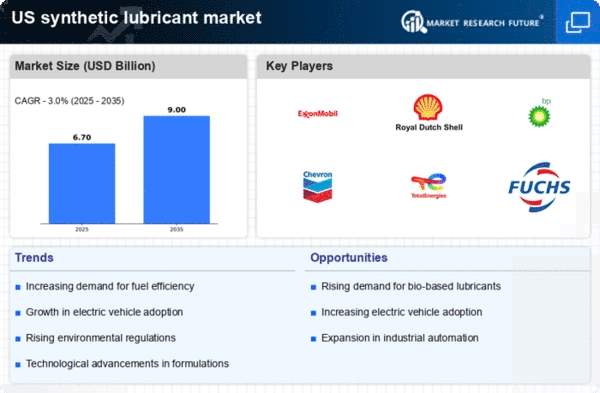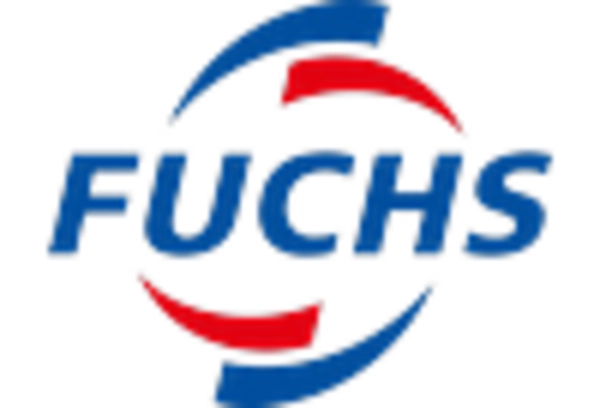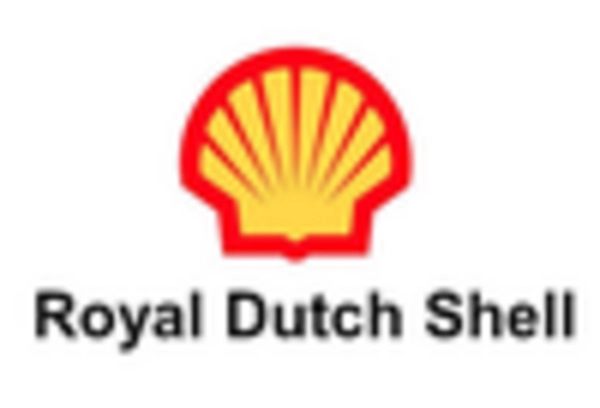The synthetic lubricant market exhibits a dynamic competitive landscape characterized by innovation and strategic partnerships. Key players such as ExxonMobil (US), Chevron (US), and BP (GB) are actively shaping the market through their focus on advanced formulations and sustainability initiatives. ExxonMobil (US) emphasizes innovation in synthetic base oils, aiming to enhance performance and reduce environmental impact. Chevron (US) leverages its extensive distribution network to optimize supply chains, while BP (GB) invests in digital transformation to streamline operations and improve customer engagement. Collectively, these strategies foster a competitive environment that prioritizes technological advancement and sustainability.In terms of business tactics, companies are increasingly localizing manufacturing to reduce lead times and enhance responsiveness to market demands. The market structure appears moderately fragmented, with several players vying for market share. However, the influence of major companies remains substantial, as they set benchmarks for quality and performance standards. This competitive structure encourages smaller firms to innovate and differentiate their offerings, thereby contributing to a vibrant market ecosystem.
In October Chevron (US) announced a strategic partnership with a leading technology firm to develop AI-driven lubricant formulations aimed at improving engine efficiency. This collaboration is likely to enhance Chevron's product portfolio and position it as a leader in the high-performance lubricant segment. The integration of AI technology into product development may also streamline operations and reduce costs, thereby providing a competitive edge in a rapidly evolving market.
In September BP (GB) launched a new line of eco-friendly synthetic lubricants designed to meet stringent environmental regulations. This initiative reflects BP's commitment to sustainability and aligns with growing consumer demand for environmentally responsible products. By positioning itself as a pioneer in sustainable lubricants, BP may attract a broader customer base and strengthen its market presence.
In August ExxonMobil (US) expanded its research and development facilities to focus on next-generation synthetic lubricants. This investment underscores the company's dedication to innovation and its intent to lead in the development of high-performance lubricants that cater to evolving industry needs. Such advancements could potentially redefine performance standards and enhance ExxonMobil's competitive positioning.
As of November current trends in the synthetic lubricant market include a pronounced shift towards digitalization and sustainability. Companies are increasingly forming strategic alliances to leverage complementary strengths and enhance their market offerings. The competitive landscape is evolving from a focus on price-based competition to one that emphasizes innovation, technology integration, and supply chain reliability. This shift suggests that future differentiation will hinge on the ability to deliver superior products and services that meet the demands of a more environmentally conscious consumer base.
















